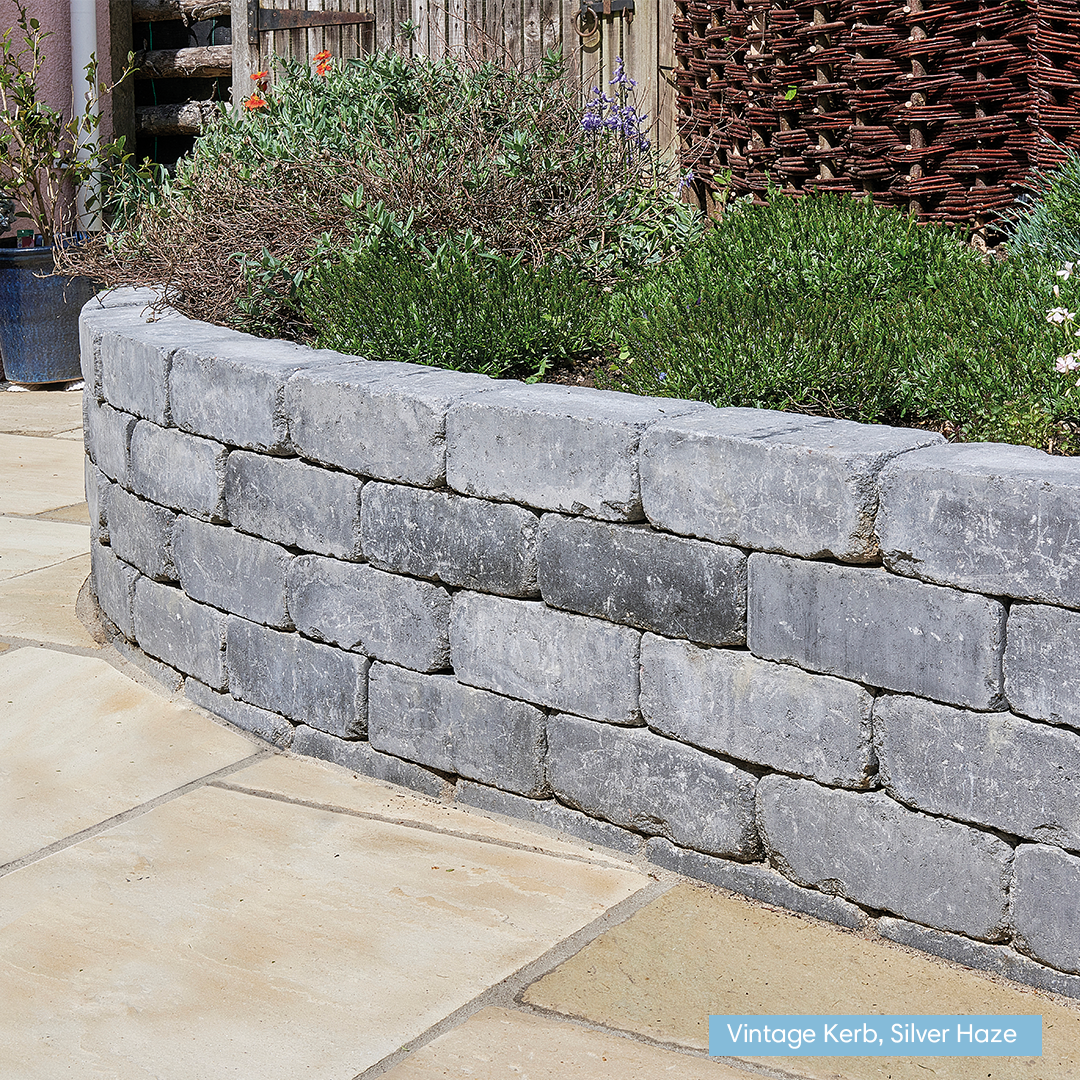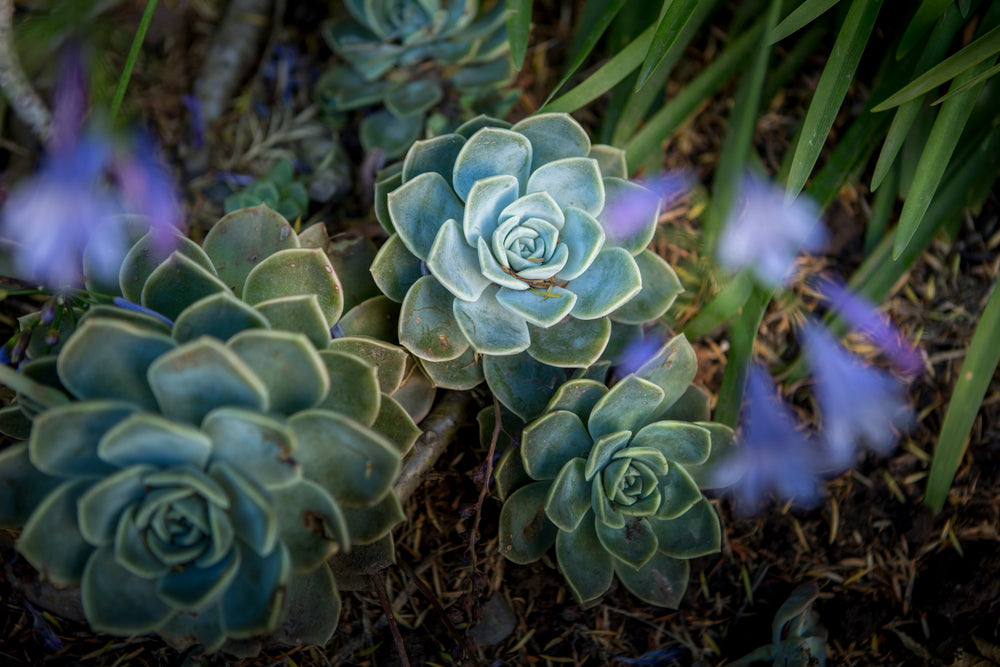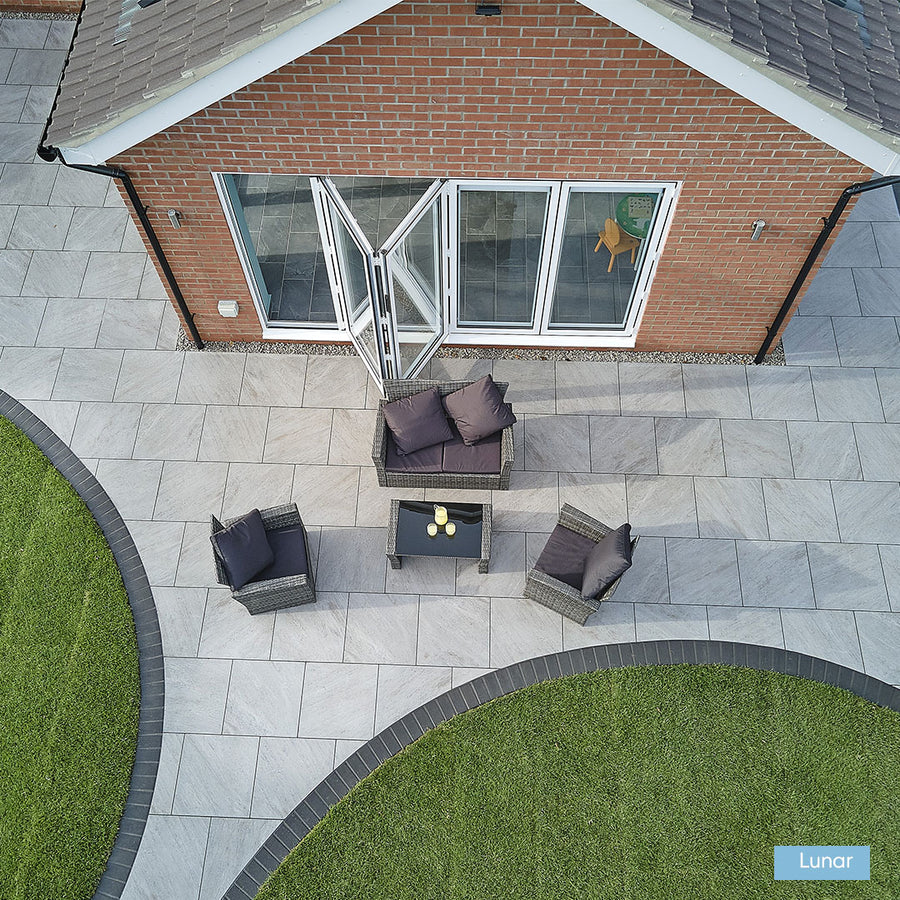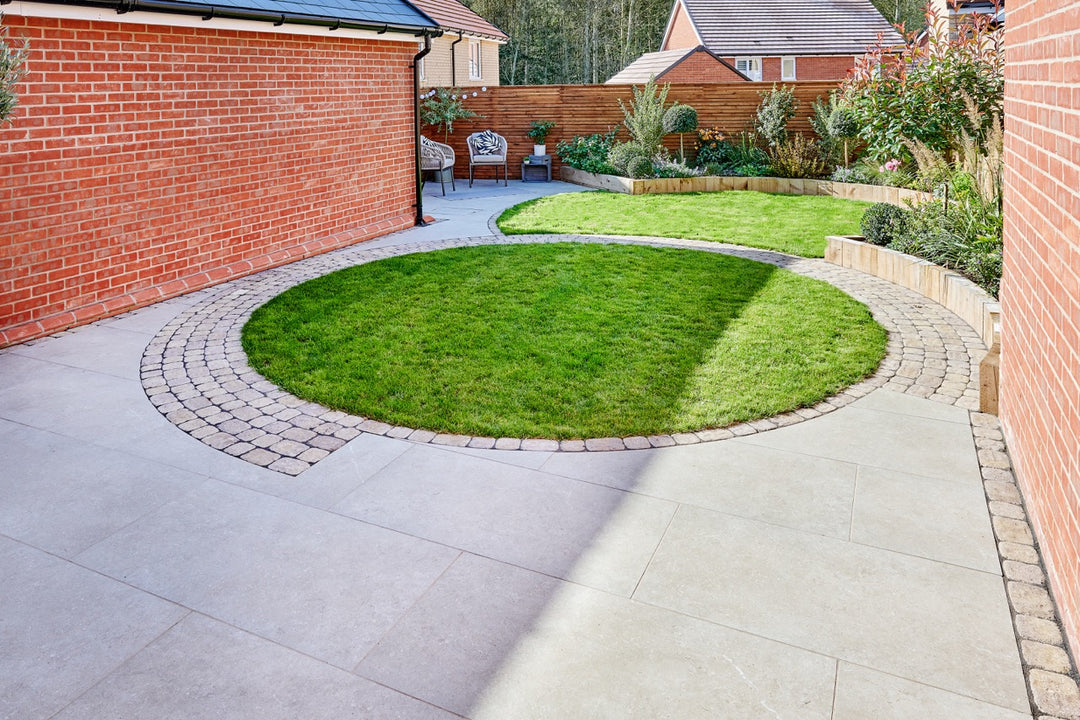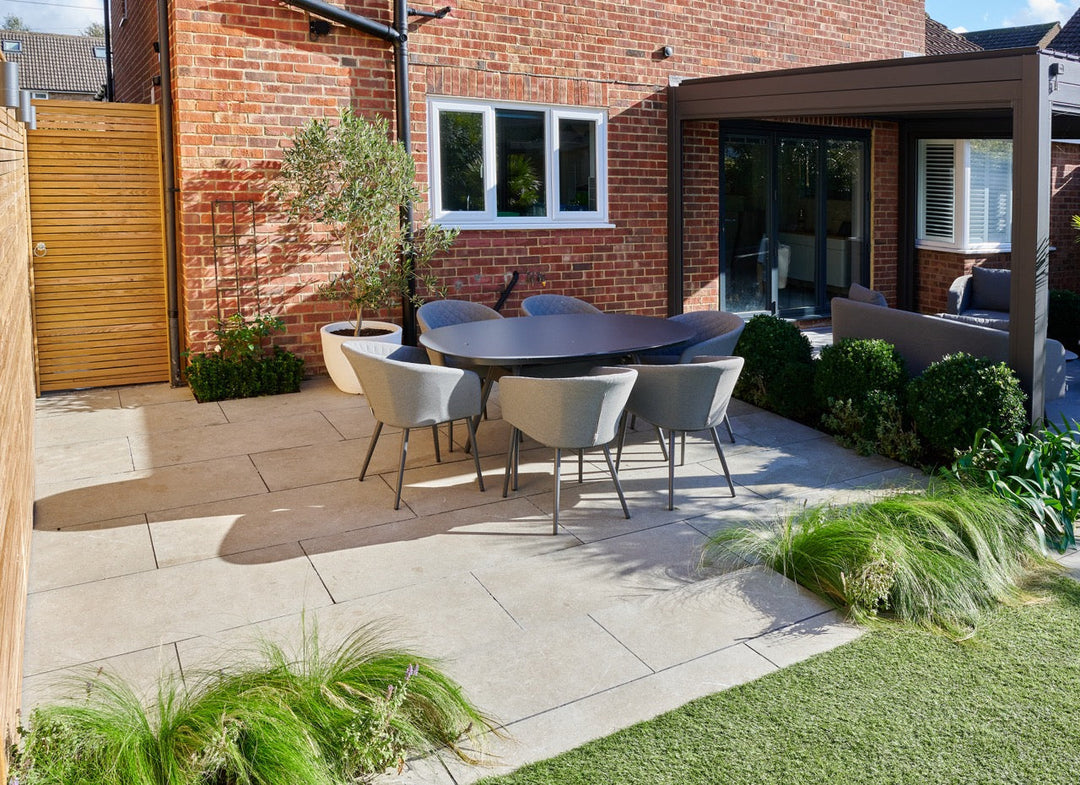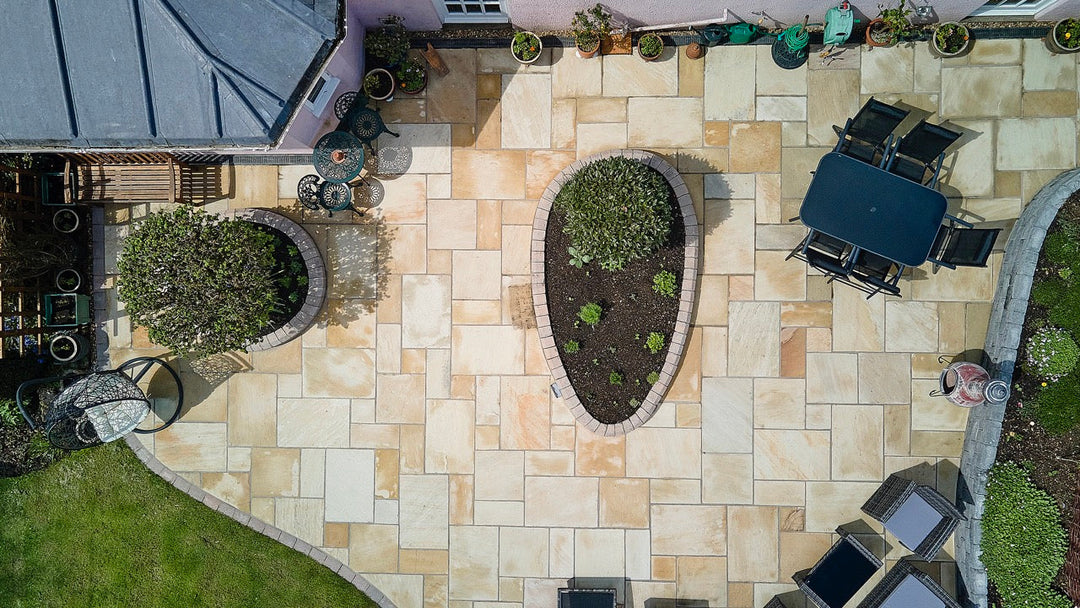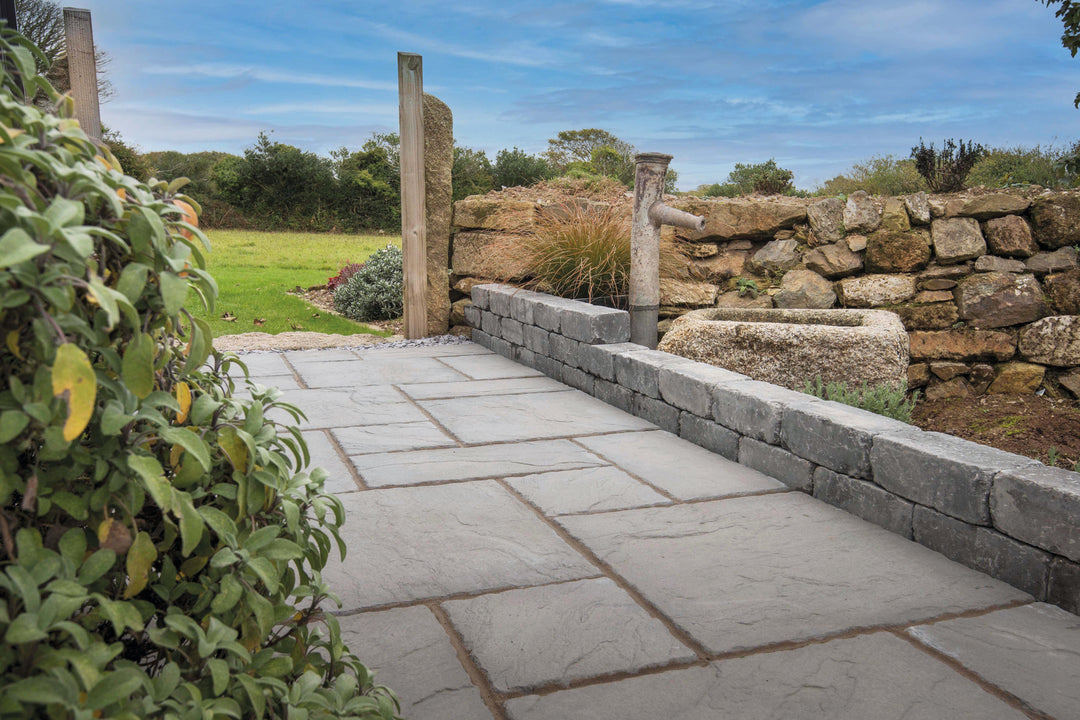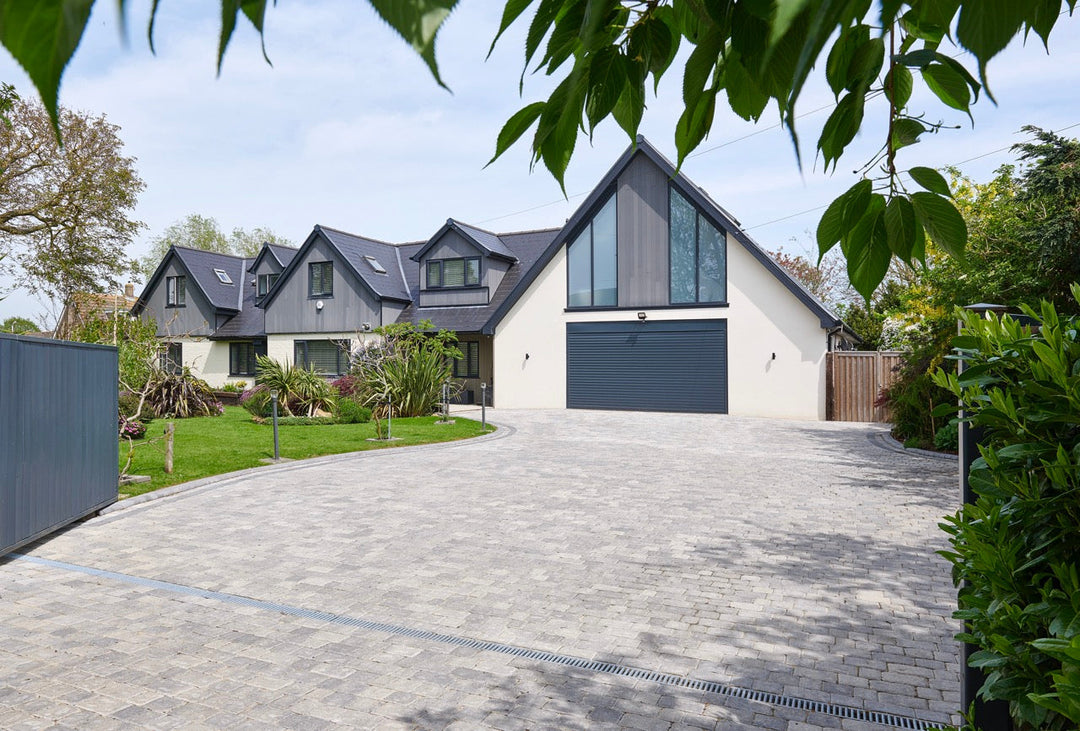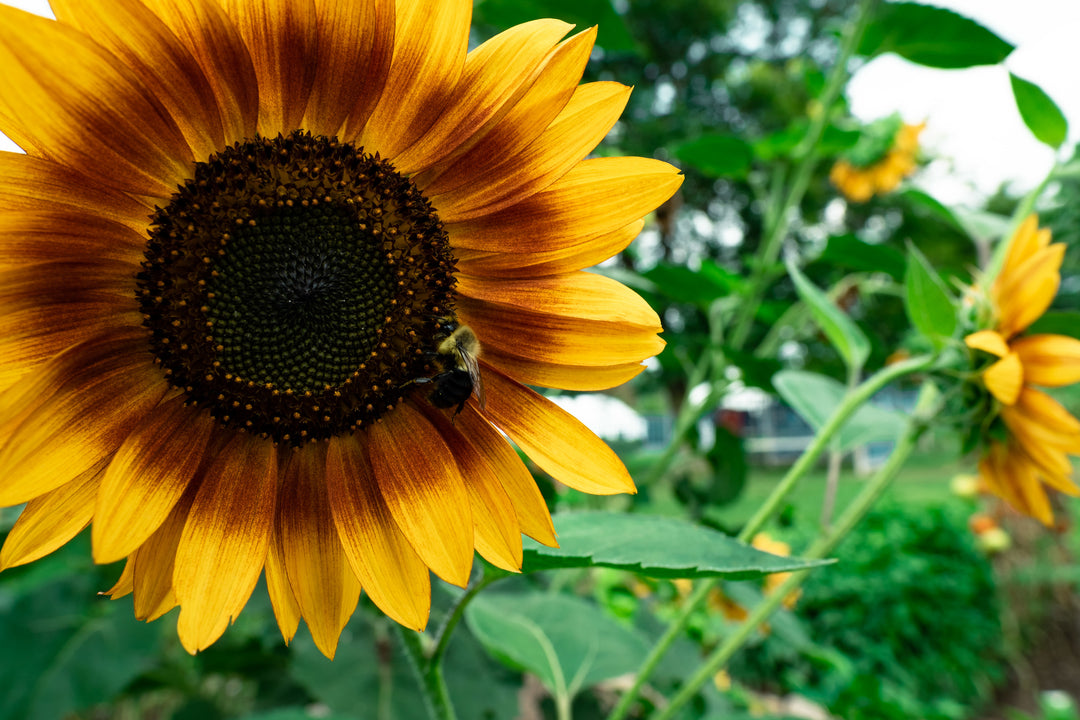Garden Paving: Choosing the Right Patio Slab
A patio is a wonderful addition to any garden, providing an attractive and functional space for relaxation, dining, and entertainment. One of the key decisions in designing a patio is choosing the right slab. There are several options to consider, each with its own advantages and drawbacks. In this blog, we will discuss the different types of paving slabs available in the market today along with some pros and cons for each.
Concrete Slabs
 Brett Bronte Acorn Brown Patio Pack.
Brett Bronte Acorn Brown Patio Pack.
Concrete is a popular choice for patio slabs due to its affordability. They are available in a smooth finish, like our Broadway Economy Smooth slab, a Riven finish like our Bronte range of paving slabs, or for a more unique look there is a textured concrete slab like our Chaucer range.
Concrete’s lack of natural variation in colour and texture can be an advantage or disadvantage depending on your design preferences. Concrete doesn't tend to last as long as porcelain or natural stone paving, but you can always seal your slabs to protect them from stains and algae.
Pros: Affordable, durable, versatile, customizable.
Cons: Lack of natural variation, may crack or chip over time.
Porcelain Tiles
 Brett Eclipse Porcelain in Apollo.
Brett Eclipse Porcelain in Apollo.
The newest product to the paving market that's hard-wearing and dirt-repelling.
This product provides a much sought after natural appearance that you get from stone paving, but retains a better resistance to frost and algae, in addition to being exceptionally durable with minimal upkeep.
Porcelain slabs are available in various colours and styles that simulate natural finishes from Sandstone and Limestone to Marble and Slate. With a 20mm option, they can offer a smooth transition from indoor to outdoor settings like your kitchen or conservatory.
They are built to last and will retain their appearance without fading over time.
This modern option is ideal for those seeking easy maintenance and long-lasting patio solutions, despite the initial cost. You can save on cleaning and maintenance expenses and avoid spending hours cleaning your patio every year, making porcelain paving a priceless investment.
Pros: Durable, Low Maintenance, Weather Resistant, Aesthetically Pleasing.
Cons: Higher cost, May require professional installation, Heavy.
Natural Stone Slabs
 Brett Indian Sandstone Patio Pack in Mountain Mist.
Brett Indian Sandstone Patio Pack in Mountain Mist.
Natural stone slabs provide a beautiful, organic look to any patio. Options range from limestone and sandstone to granite and slate, each with its own unique characteristics. Stone slabs are typically more expensive than concrete paving slabs, and cheaper than most porcelain tiles, but still provide unparalleled beauty and durability.
With a wide range of colours and sizes available, it makes it easy to find something to match your preference. As these slabs come from a natural source, you will often find subtle differences in each slab to give a truly individual and unique look to your patio. No two slabs are alike!
Pros: Natural variation in colour and texture, durability, long-lasting.
Cons: Higher cost, may require professional installation.
Block Paving
 Brett Aura Block Paving in Bronze Fleck.
Brett Aura Block Paving in Bronze Fleck.
Not usually a 'go-to' product for a patio, but don't rule out concrete block paving for your garden patio. Block pavers are manufactured concrete blocks that can be arranged in various patterns to create a unique patio design.
Pavers are easy to install and replace, making them a popular choice for DIY enthusiasts. Pavers are also easily customizable with various colours and textures.
Due to the smaller plan size of block paving, they are normally better suited to smaller areas such as courtyards, pathways, driveways or small patio areas.
Pros: Affordable, low maintenance, easy to install and replace, versatile.
Cons: Longer install time, not always suitable for larger areas.
FAQ's
What type of patio slab is best?
This really depends on your personal preference and the budget you have for your project.
- Concrete paving tends to be the cheaper option to install, but may not last as long, and needs a bit more upkeep than porcelain paving.
- Natural stone paving is generally considered the mid-range price of paving option. With the different striations and colour variations in each pack, you really get a unique patio with something to catch your eye. However, if you're looking for a uniform look to your patio, maybe think about porcelain instead.
- Porcelain paving is the top-end paving option, and with its wide ranges of colours and styles, there's something to suit everyone, and if you can afford the higher price range, then the low-maintenance aspect means there is very little upkeep further down the line, and the patio will last for a long time.
What is the best thickness for patio slabs?
This, again, will depend on what you plan to use your garden patio for.
- Most concrete garden paving has a 32mm (~1¼ inches) thickness, which is suitable for a general use patio that contains the usual seating areas and BBQ's. You may want to look at a thicker option if you are planning on having a hot-tub installed, as the extra weight can put strain on the slabs.
- Most natural stone paving and porcelain paving comes in at around 20-30mm, with some special options - like Brett GeoCeramica® that comes in a 40mm version, and a 60mm version for driveways - and they need to be laid correctly so that there are no edges or corners unsupported by the mortar base.
What size patio slab should I use?
This depends on the size of your patio area. Generally, the larger your patio area, the larger patio slab you will get away with. This is because if you use a smaller slab on a large area, it can start to look a bit busy. On the other hand, if you are using smaller slabs in a smaller patio area, you can create the illusion of more space by laying the slabs lengthways in a stretcher bond.
What is the lowest maintenance patio?
Porcelain paving tends to be the lowest maintenance patio option because they are durable and hard-wearing, frost and algae resistant and don't chip or crack easily.
You can reduce the maintenance required on concrete paving by sealing it. This will protect them from stains and algae, but the sealant will weather over time, so you will need to seal the slabs on a regular basis - perhaps every 3-4 years.
Choosing the right patio slab involves weighing the advantages and drawbacks of each material, as well as your design preferences, maintenance requirements, and budget. No matter which material you choose, your patio is sure to become a cherished space for relaxation and entertainment.
Shop by Collection
Brighten up your garden.
Is it time to step outside and enjoy the fresh air, which would be even more delightful on a new patio? Discover the slab for you.
We're here to help.
If you've found a product you like and have any questions, please contact us either via our LiveChat service or through the Contact Us form.
Refresh your entrance.
Nothing beats the feeling of coming home, but it's even better when you're pulling up to an inviting, freshly paved driveway. Browse the range.




